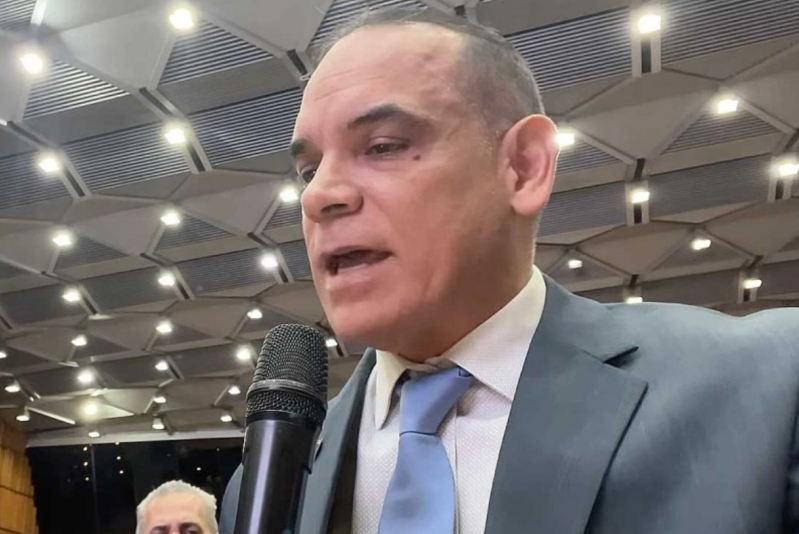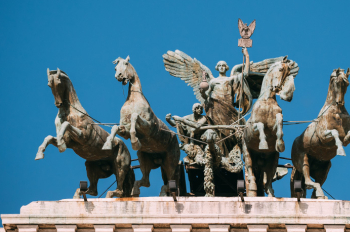
Within the framework of a meeting convened by the regime of Nicolás Maduro with government representatives and religious leaders, the Evangelical Council of Venezuela (CEV) reaffirmed its commitment to defending religious freedom and maintaining the separation of Church and state, according to reporting by Diario Cristiano, Christian Daily International's Spanish edition.
José Piñero, executive director of the CEV, expressed the organization's official position, emphasizing the importance of maintaining the evangelical community's independence from any form of state interference.
“We believe in the separation of church and state, but also in the civic responsibility of Christians,” Piñero said. In his speech, he stressed that the CEV's primary mission is to preach the Gospel and be “light in the midst of darkness.” Furthermore, he clarified that the creation of pastors' collegiums should be an organic process rather than a government-imposed initiative.
“We do not believe in impositions or initiatives that could be perceived as an attempt to control or manipulate faith or serve the promotion of individuals,” the CEV executive director said. He also emphasized that the council maintains a policy of dialogue with the state from a position of independence and respect, without aligning with any political faction.
Regarding state management of the church, Piñero expressed concern about any potential bureaucratization that could hinder the development of religious congregations in the country. “The state should be a facilitator rather than a controller of church activity, and the more interference it has in religious life, the greater the detriment to religious freedom,” he said.
Piñero also underscored that the church should be supported by the tithes and offerings of its members, not by state resources. “We are not looking for the state to support or favor any religion with perks. We believe that it is not moral to ask the state to do for us what we assume it is right to deny to others,” he said.
Finally, Piñero reaffirmed the Evangelical Council of Venezuela's commitment to truth, justice, and religious freedom, calling on the state to guarantee equal treatment for all denominations. “The state must treat everyone equally, whether they are Catholics, Evangelicals, Jews, Muslims, or others. That is the essence of democracy: equality before the law and order,” he concluded.
The Evangelical Council of Venezuela reiterated its willingness to continue working for a country where Christian values are promoted and respected and where all citizens can live in peace and prosperity.
As earlier reported by Diario Cristiano, the Maduro regime called a meeting Monday (Feb. 10) to discuss the change of status of non-profit civil associations to churches. The meeting was attended by Vice Minister of Religious Institutions and Cults Dr. Edgar Arteaga, along with other government officials.
As part of its strategy to gain followers, the Venezuelan regime continues to implement a plan to recruit supporters to legitimize its third term in office. In this context, the call was addressed to “pastors and ministers, directors of evangelical Christian organizations, whether federations, confederations, councils, fraternities, fellowships, and other forms of association of groups of churches living in the Bolivarian Republic of Venezuela,” according to a message disseminated via WhatsApp nationwide, with special emphasis on Caracas.
As also reported by Diario Cristiano, Maduro announced last week that churches in the country will take “the message of Jesus Christ to the prisons.” This initiative, aimed at “building the path of redemption,” is part of a controversial agreement signed by the president alongside representatives of religious centers and the Ministry of Penitentiary Services.
Additionally, in recent days, as part of the celebration of Pastor’s Day in Venezuela, Maduro led an event addressing evangelical pastors and leaders who support his government. During the event, he presented a series of proposals to formalize religious activities, including the March for Jesus and chaplaincies in prisons.
These initiatives, along with state aid, have been interpreted as a strategy to gain support in a political climate marked by a lack of electoral backing, as evidenced by the results of the July 28 elections last year.
Watch the full comments of Pastor José Piñero, executive director of the Evangelical Council of Venezuela, at a meeting of evangelical leaders and state officials.
Originally published by Diario Cristiano, Christian Daily International's Spanish edition.





